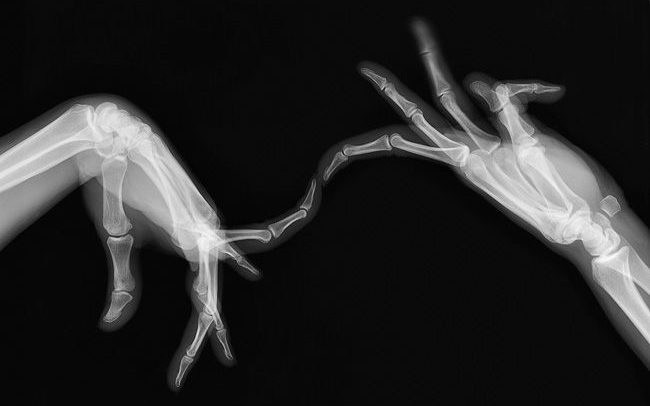Susana Magalhães is the Head of the Unit for Responsible Conduct in Research at the Institute for Research and Innovation in Health of the University of Porto (i3S), Lecturer at University Fernando Pessoa and invited Lecturer at Portuguese Catholic University, where she has been the Scientific Coordinator of the Narrative Medicine Course between 2017 and 2021. Her research focuses on the areas of Narrative Medicine and Research Ethics & Integrity. She is a Certified Virt2UETrainer and she has been coordinating the Group of Study and Reflection on Narrative Medicine (Grupo de Estudos e Reflexão em Medicina Narrativa — GERMEN) since February 2018.

What is the name of your organization/association/society/research group?
GERMEN (Grupo de Estudos e Reflexão em Medicina Narrativa | Group of Study and Reflection on Narrative Medicine (https://www.facebook.com/GermenMedicinaNarrativa)
What is its story and history?
On 28th February 2018 GERMEN was officially launched following the first edition of a narrative medicine course organized at Universidade Católica Portuguesa under the scientific coordination of Susana Magalhães (six editions took place between 2017-2021). GERMEN has also been designed and built with the essential collaboration and guidance by Paula Silva (Faculty of Medicine of S. João, Porto, Portugal), between 2018 and 2022, to whom we pay our homage.
This Group of Study and Reflection aimed and still does to promote a hands-on approach to medical humanities and ethical deliberation in the context of healthcare, based on the following assumptions:
- Medicine intervenes in the human body by naming and describing the conditions that come to be defined as pathological (not normal) and that justify its intervention. However, this meaning has been undergoing changes, due to three main reasons: the evolution of the discipline itself, the emergence of new social movements in health (namely patients’ associations) and a progressively more demanding attitude from citizens;
- The new architecture gradually projects itself into organizations and relationships, and is directly proportional to the scale on which it occurs. Recently, the figure of the “patient” registers a particular prominence, translated by expressions such as “patient-centred care”, “personalised medicine”, “precision medicine”, “stratification medicine” or “narrative medicine”. This visibility has been revealing a rearrangement of professional practice resulting from the progress of medicine and the institutional environment in which it develops, with repercussions both on peer relationships and on the organizational level
- Due to these fundamental changes in the landscape of healthcare, collaborative work between various areas of knowledge has been more and more important. Narrative Medicine presents itself as the most inclusive of the different fields of medical humanities: besides internalizing – making operational – the knowledge of the experience of illness, it gives health professionals the opportunity to develop attitudes and behaviors, which facilitate the implementation of Person-Centred care. To this extent, Narrative Medicine covers the subjective and intersubjective dimension of the subject and the relationships they establish.

What is its mission and its philosophy?
- To implement academic, scientific and cultural activities in the field of Narrative Medicine
- To promote and consolidate Narrative Medicine in Portugal, through solid theoretical pillars and with different initiatives, which can contribute to better humanized health care. All GERMEN activities are based on what we call the three R’s of Healthcare: Respect for the Person; Responsibility; and Relationship-based-on–Recognition (followed by adequate action) of the different types of Vulnerabilities affecting those who are cared for and those who care;
- To help respond to the current challenge of implementing an approach to Healthcare based on Relationship, Interdisciplinarity and Critical (Re)Vision of concepts, practices and attitudes.
How is it framed today? What are the main ongoing projects?
Germen was founded by members who, by their activity and experience, were motivated to promote practice and life-based oriented reflection, within an interdisciplinary approach: Bioethics, Sociology, Literary Studies, Philosophy, Anthropology, Architecture and Medicine.
Nowadays, GERMEN continues to integrate members from different academic fields, healthcare practice and Arts, and its main focus has been to promote monthly podcasts on various topics concerning the micro-, meso- and macro level of healthcare. It has also been contributing to the implementation of narrative medicine reflection in healthcare institutions and courses by organizing lectures, workshops, seminars, and roundtables.
Moreover, it has now a regular collaboration with the Palliative Medicine Study Group of the Portuguese Society of Internal Medicine with a monthly chronicle entitled Stories that Take Care. Each chronicle is a critical analysis of a book that may contribute to promote critical thinking and narrative input among medical students and residents. The book review corner will be followed up by monthly meetings with medical students from ICBAS — one of the two faculties of Medicine in Porto, Portugal.
Germen has also established important collaborations with the European Society for Narrative Medicine (EUNAMES) and with The Doctor as a Humanist (DASH).
What plans for the future?
We have been plowing the soil, planting seeds and harvesting and we intend to go on doing it. We believe that now it is the right time to have more hands on approach to narrative medicine, collaborating closely with healthcare institutions/organizations and promoting regular meeting with healthcare professionals in order to SEE how close reading, reflective writing and the parallel chart can actually make the difference in their daily practice.
We also aim to develop more interactions with patients associations, following the example of the current collaboration with Young Parkies Portugal and with biomedical researchers, assuming that healthcare includes patients, caregivers, researchers, decision makers and the community at large.
Where did the organization/association/society/group find resistances or difficulties (i.e. shortage of HCP, time pressure, EBM dogma…)?
The main resistance is rooted in the current mindset, focused on metrics and quantitative data, burdened with technology and checklists. Narrative Medicine and medical humanities are relationship-based, driven by the scent of time (Byung Chul-Han. The Scent of Time. 2009. Berlin, Verlag):
“The current time crisis is connected with the absolutization of the vita active. It leads to a work imperative which reduces people to beasts of burden (animal laborans). Everyday hyperactivity depletes people’s lives of all ability to linger and be contemplative. This renders a fulfilling experience of time impossible. Revitalization of the vita contemplativa and relearning of the art of lingering are essential to overcoming the current time crisis.” (p.2)
Bearing in mind the acceleration induced by artificial intelligence and machine learning, current and future healthcare professionals need to improve their relationship literacy, so that they can make decision makers, patients and caregivers see why relationship-based care really matters: a person taking care of another person requires the preservation of personhood and personhood is rooted in time, narrative and alterity. Narrative Medicine will provide unique resources to face our and the next generations brave new world.
